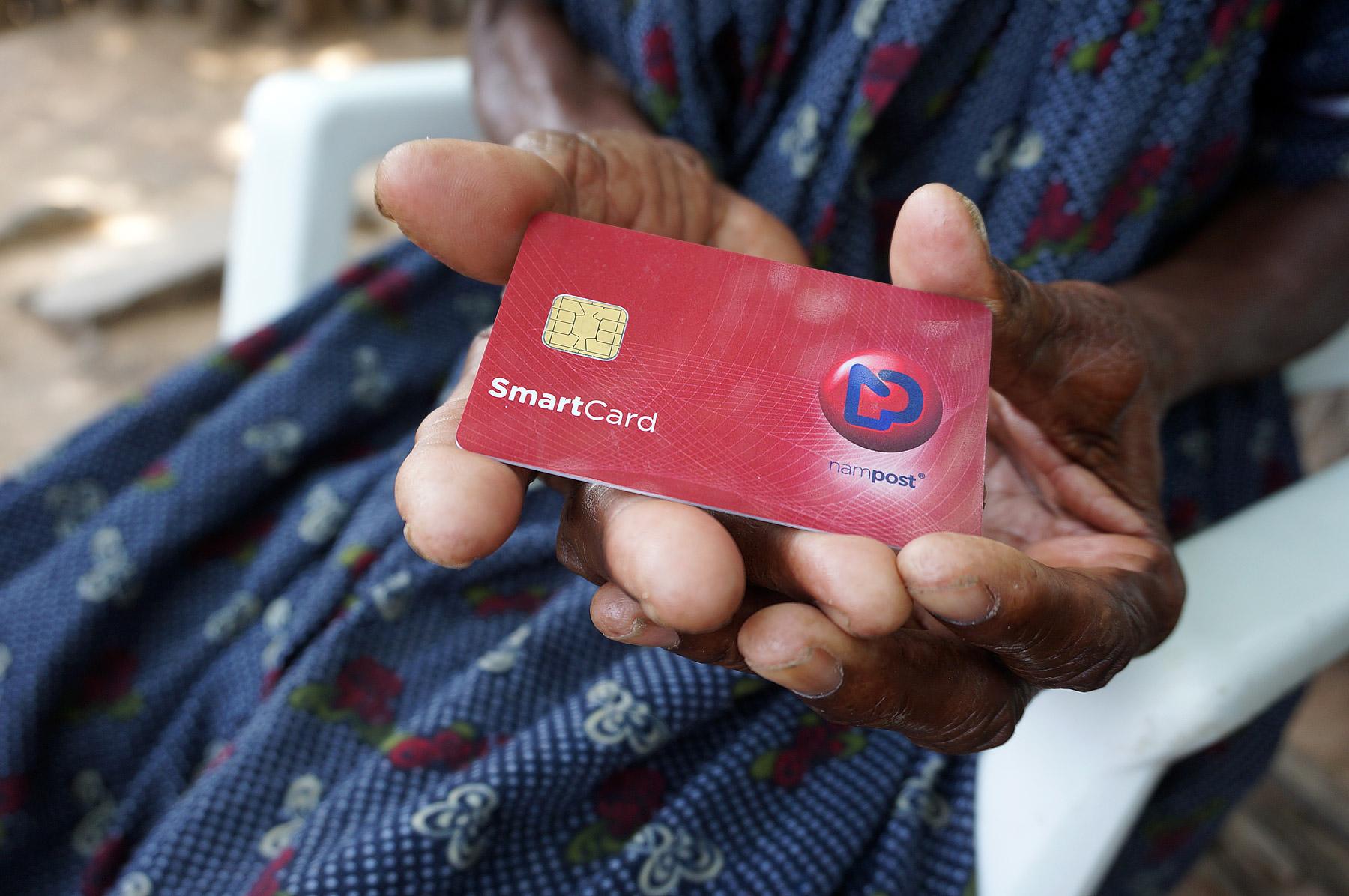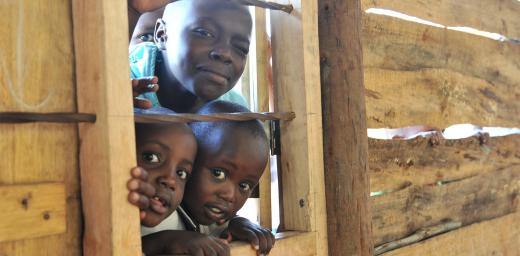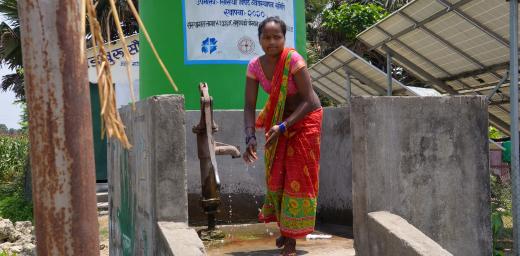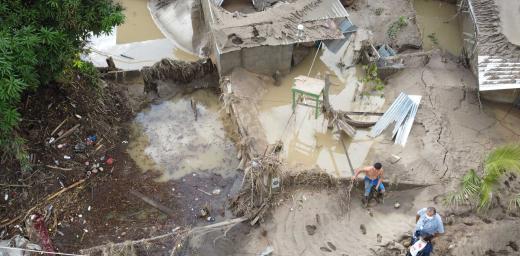Relief Support Still Needed Despite Rains in Namibia

Ndapanda Mentte Shandingi shows a Nampost debit card. Photo: LWF/M. Hyden
Lutheran Churches Seek Additional Assistance for Vulnerable Households
(LWI) – It is looking green again in many parts of Namibia, thanks to heavy rainfall after a prolonged period of drought, and some farmers have started planting their fields. But for thousands of rural communities who lost entire livelihoods in the disaster, relief support is still needed as most people have depleted their food stock and market prices are high for both food and farming inputs including seeds.
The Lutheran World Federation (LWF) and its member churches in Namibia are appealing to their partners for additional support to extend a drought response initiative through which vulnerable households receive a cash grant to buy food and other basic necessities. The cash transfer program (CTP), running from September 2013 until February 2014, has helped nearly 6,000 people cover gaps in household incomes and empowered families to prioritize their own needs during one of the worst disasters in the country’s history.
Through the CTP coordinated by the LWF and the United Church Council of Namibia Evangelical Lutheran Churches (UCC/NELC), vulnerable families in remote rural areas receive a monthly cash grant of 100 Namibian dollars (USD 10) per head.
In a follow-on drought response appeal under the global churches network ACT Alliance, the LWF and UCC are seeking an additional USD 235,429 to extend emergency support until the end of May 2014. This will enable families that are still affected by food deficits to cope during the critical transitional period before the next harvest.
When Namibia declared a national emergency in May 2013, the government said the drought had severely affected livestock owners and farmers, and nearly 40 percent of the 2.1 million people in the country needed emergency assistance.
Appreciation for Cash Pay Out
Feedback from the participating communities indicates appreciation for the cash method and its outreach. Selma Ndeutapo’s family lost most of their livestock to the drought; only two donkeys survived. The mother of a four-month old son says she is grateful for the UCC cash pay out, which she used to feed her child. “There was no salary coming in and so the monthly amount was an important gap filler,” adds the 34-year-old.
Beatrice Brogadega says she used the money to ensure a steady food supply for her household, bought winter clothes for her children and paid school fees. "We pray the church will continue to remain with us,” she adds.
A pensioner, 87-year-old Ndapanda Menette Shandingi says she initially received news about the initiative with some skepticism. Today, she is “very grateful for the assistance provided through the churches.” When she first heard about the cash grant at her local church, Shandingi thought “it was simply a scam either for buying election votes or a ploy to get the community to sell their goats." But when she saw the church logos on the assessment team cars visiting the community, she came forward and registered, and has been receiving cash for herself and five other people that she supports.
The cash intervention mainly targets the most severely affected communities in Hardap region, southern Namibia; and in Kunene, Omusati and Okavango regions in the north, where the Evangelical Lutheran Church in Namibia (ELCRN) and the Evangelical Lutheran Church in Namibia (ELCIN) are present. So far, more than 500 people have also received psychosocial support, and training was conducted for emergency preparedness and advocacy in the partnership that also includes the German–speaking Evangelical Lutheran Church in Namibia.
“Some people mentioned they appreciated that the project did not benefit only the ‘Lutherans’ but included all segments of the community,” notes Michael Hyden, humanitarian coordinator at the LWF Department for World Service (DWS), following a recent visit to affected communities.
Slow Recovery
The rate of drought recovery is slow, and until the next harvest, an estimated 778,500 vulnerable people are at risk of food insecurity, according to an assessment by the government’s disaster and risk management directorate. Most families have depleted their 2012 harvest and now depend on the market and drought relief food provided by the state and other partners.
Enhanced Collaboration
The Lutheran churches’ initiative involves a first-time collaboration between the UCC and the Namibian postal and banking services Nampost, which provides individual debit cards for the cash transfer pay out.
The DWS Southern Africa Emergency Hub supports the churches through training in emergency preparedness and humanitarian interventions for the local pastors. The capacity development curriculum is a joint effort between DWS and the LWF Department for Mission and Development, with support from the Finnish Evangelical Lutheran Mission.
The Lutheran Communion in Southern Africa (LUCSA) and its Theological Institute for Advocacy and Research in Africa (TARA) provides technical advice, and coordinates data collection for the program. Possibilities are being explored for an independent external evaluation on the CTP impact together with the Namibian Red Cross that has a similar pilot project in Kunene region, Hyden adds.





